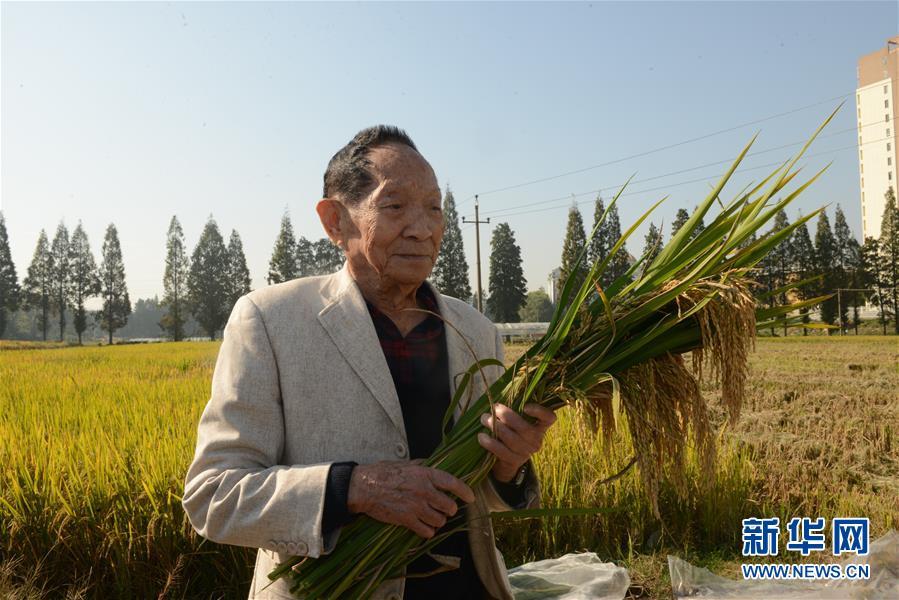Food security is a major issue for national development and people's well-being, and China needs to remain highly vigilant regarding grain security, especially amid the fallout of the COVID-19 pandemic, said the nation's leading agricultural scientist.

Yuan Longping holds a strain of the third-generation hybrid rice in Changsha, Hunan province, on Oct 30, 2018. [Photo/Xinhua]
"Domestic grain production fulfills 87 percent of China's food supply. It is true we still need to import grain from other countries," Yuan Longping said in an interview with China Daily on Monday.
"We must try all-out expansion of the planting area and improve the unit yields of hybrid rice to achieve self-reliance in grain production," Yuan said.
By April, 13 countries, including Vietnam, Russia and India, had announced curbs on grain exports to ensure their own food supply amid the pandemic.
In June, Yuan's team launched programs to plant rice in saline-alkali soil across the country, turning 6,667 hectares of saline-alkali land into arable land.
In addition, Yuan's team began conducting high-yield trials in Guanyang county, Guangxi Zhuang autonomous region, in 2010 and mainly promoted a new planting model that produces two crops a year while only transplanting rice seedlings once.
It managed to yield 23.4 metric tons per hectare in 2017, setting a world record for rice output.
According to Chen Aiping, head of Guanyang Agricultural Technology Extension Station, annual grain production has risen 10 percent as a result of innovative planting, boosting incomes by 6,000 yuan ($870) per hectare.
In 2019, the county grew 8,000 hectares of super hybrid rice with annual production of 78,000 tons, according to Guanyang's agriculture department.


